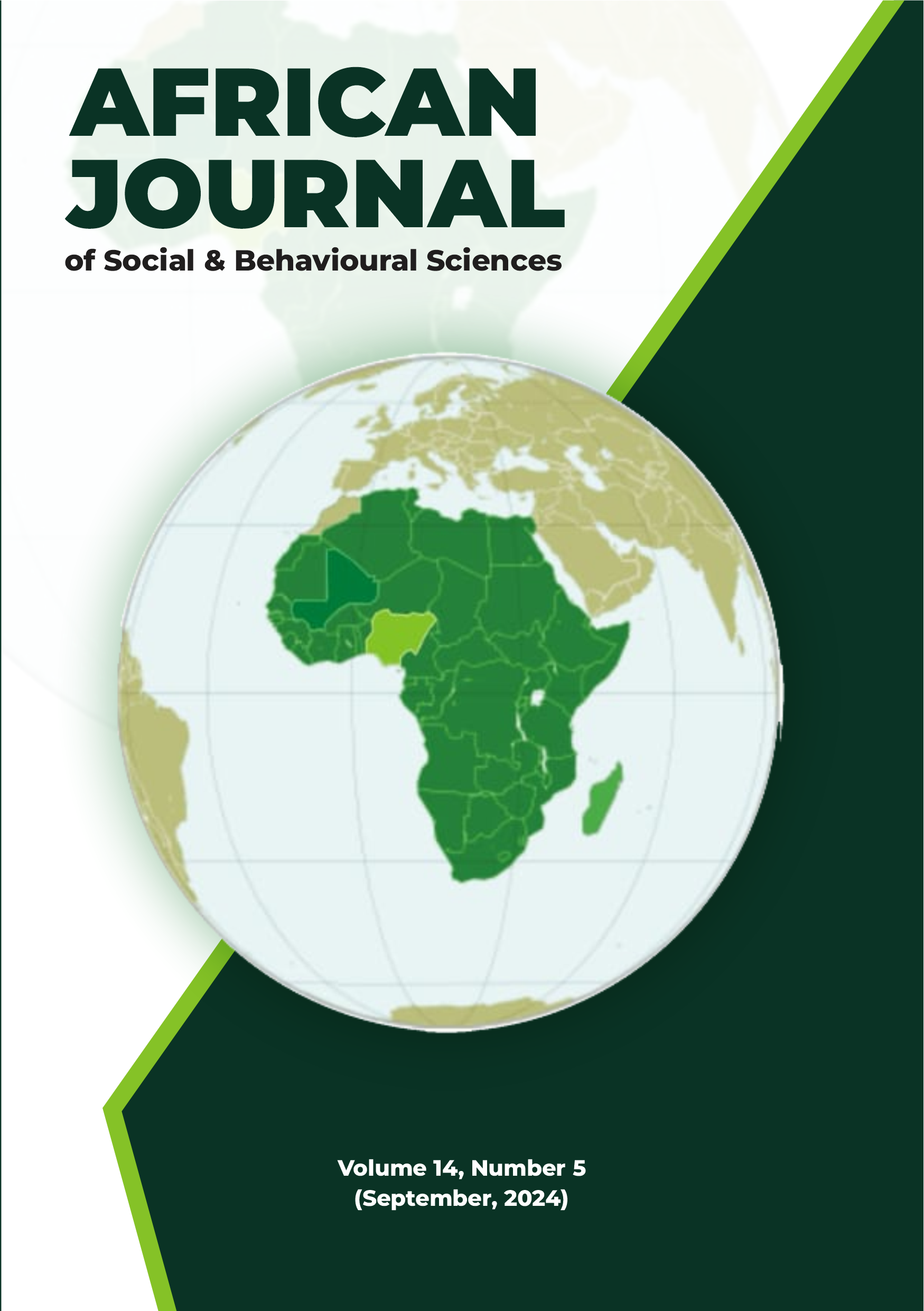TRADE UNIONISM AND WORKER ALIENATION IN NIGERIA: IMPLICATIONS FOR WELFARE AND POVERTY REDUCTION
Keywords:
Trade Unionism, Workers, Welfare, Worker Alienation, Poverty Reduction, Collective Bargaining, Conflict ResolutionAbstract
The degree to which trade unions‟ and workers‟ rights, interests and welfare
are protected and advanced in any economy depends significantly on the existence, strength,
power ,character and legitimacy of trade unionism as the voice of labour and instrument of
collective bargaining and conflict resolution in the world of work. This paper attempted to
perform a critical analysis of the major issues facing workers and trade unionism in Nigeria,
and sought to show the underlying causes of worker alienation and poverty in Nigeria. The
objectives of the study are to identify the industrial and labour relations issues facing workers
and trade unionism in Nigeria; to ascertain the underlying causes of worker alienation,
poverty and insecurity in Nigeria‟s work environment; and to examine the relationships
among collective bargaining, the promotion of workers‟ welfare and poverty reduction in
Nigeria. The study adopted the qualitative method as its methodology for data collection
through the use of secondary source, such as text books, journals, magazines, newspaper
publications, while content analysis was its method of data analysis. The conflict analytical
paradigm of Marxian and post Marxian schools of thought formed its theoretical framework.
Interalia it found that the NLC and the other labour unions are often prevented from
representing the interests of the Nigerian workers; trade unions in Nigeria are perceived by
governments and other employers of labour as opposition and parallel forces and not given
the opportunity to bargain freely for the workers. The study concluded that the NLC needs to
strategize the bargaining methods pertinent to coping with the enormous internal and external
challenges of 21st century trade unionism, and to disentangle itself with a dogmatic
ideological disposition that best describes its present actions and character to end worker
alienation and reduce poverty by promoting workers' welfare and trade union rights in the
country, especially in the present democratic dispensation. Interalia, it recommended that, the
NLC and other labour unions should be given the opportunity to represent the interests of
their members at all times in order to end the present worker alienation, pauperization and
abject poverty experienced by the Nigerian workers; recognition of trade unions in Nigeria as
legitimate workers' representatives in collective bargaining and grievance procedures by the
Nigerian governments and other employers of labour; full, uniform and prompt
implementation of minimum wage increases and other workers' welfare policies.


